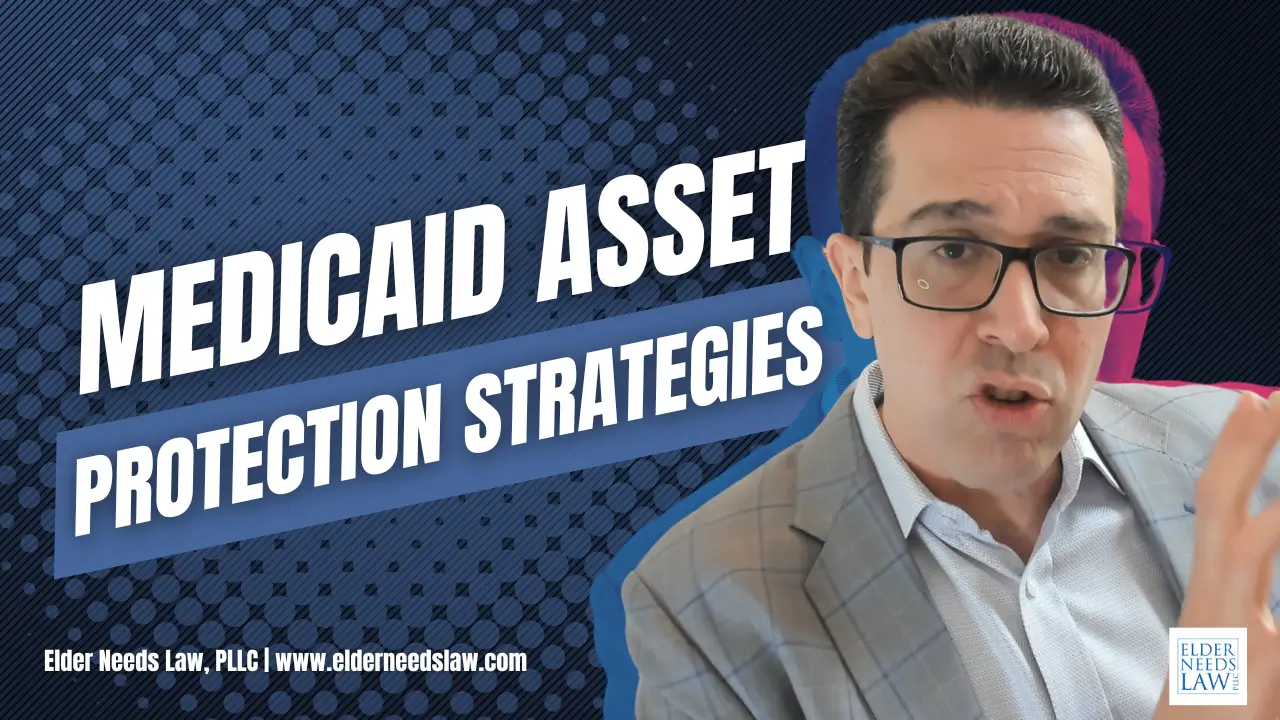Protecting Your Assets While Qualifying for Medicaid: A Florida Guide

Watch our detailed video explanation below:
When families face the reality of long-term care costs, the fear of losing everything to qualify for Medicaid can be overwhelming. The good news? You don't have to go broke to get the care you need. Florida offers several legal strategies to protect your hard-earned assets while still qualifying for Medicaid benefits.
Two Paths: Planning Ahead vs. Immediate Need
Most families fall into one of two situations when they come seeking help with Medicaid planning:
The Five-Year Planning Window
Some families have the luxury of time. Perhaps you're in your seventies or healthy eighties, and you can see what's coming. You recognize that your private long-term care insurance might not be enough, or maybe you don't have any coverage at all. You know you'll eventually need help paying for home care or facility care, but you don't anticipate needing Medicaid within the next five years.
For families in this position, the Medicaid Asset Protection Trust becomes a powerful tool. This strategy involves placing a portion of your assets (not everything) into an irrevocable trust. After five years, everything in that trust becomes invisible to Medicaid's asset calculations. This approach requires patience, but it can protect substantial assets for your family's future.
The Immediate Need Scenario
The majority of families face a more urgent situation. Mom or dad has been hospitalized, they're now in a rehabilitation facility, and they'll soon need either nursing home care, assisted living, or extensive home care. Waiting five years simply isn't an option.
For these families, Florida offers several immediate strategies that can protect assets without the five-year waiting period.
Florida's Immediate Asset Protection Strategies
Personal Services Contracts
One effective approach involves creating contracts with family members who are already providing care. These contracts allow you to pay family members in a lump sum for services they're performing. This isn't considered a gift under Medicaid rules and can help reduce countable assets.
Pooled Special Needs Trusts
These trusts allow you to set money aside while maintaining some liquidity for the client's benefit. The funds in these trusts don't count as assets when determining Medicaid eligibility, and they're not considered gifts under Florida law.
Medicaid Compliant Annuities
Certain types of annuities can convert countable assets into an income stream that meets Medicaid's requirements. These must be structured very specifically to comply with Florida Medicaid rules.
Medicaid Compliant Promissory Notes
These financial instruments can help convert assets into acceptable forms while maintaining some benefit for the family.
Real Estate Strategies
Florida offers interesting opportunities for those who own rental properties or want to make real estate investments as part of their Medicaid planning strategy.
Strategic Spending (Spend-Down Items)
Sometimes the best strategy is simply spending money in ways that benefit you while reducing countable assets:
- Home Safety Improvements: Making your home safer and more accessible for aging in place
- Prepaid Burial Expenses: These are exempt assets under Florida Medicaid rules
- Vehicle Upgrades: You can own one vehicle of any value, so trading an old car for a newer, safer one makes sense
- Home Improvements: Necessary repairs and modifications don't count against you
The Reality: Every Strategy Has Trade-offs
It's important to be upfront about this: there's no magic solution. Every Medicaid planning strategy comes with both benefits and drawbacks. Some strategies:
- May be subject to Medicaid estate recovery after death
- Could have income tax consequences
- Might reduce your immediate liquidity
- May not be suitable depending on your specific care needs
The key is layering these strategies together in a way that maximizes benefits while minimizing drawbacks. In most cases, the ability to receive help paying for home care or facility care far outweighs any disadvantages.
Why Families Are Often Pleasantly Surprised
Most people believe they'll have to lose everything to qualify for Medicaid. They think they'll need to sell their house, spend down every penny, and leave nothing for their family. This simply isn't true in Florida.
Through proper legal and ethical planning, families can protect significant assets while still qualifying for the long-term care benefits they need. The relief families feel when they realize they don't have to go broke is often profound.
Important State-Specific Considerations
These strategies are specific to Florida law. Medicaid planning techniques that work in Florida may not work in other states. Each state has its own rules and regulations regarding asset protection and Medicaid qualification.
If you're planning to move to another state, you'll need to consult with an elder law attorney in that state. If you're currently in another state, these Florida strategies won't apply to your situation.
Taking the Next Step
If you're anywhere in Florida and facing the challenge of long-term care planning, don't wait until it's too late. The sooner you begin planning, the more options you'll have available.
Ready to protect your family's financial future?
- Schedule a consultation to discuss your specific situation
- Visit our website at elderneedslaw.com for more resources
- Get detailed information at medicaidplanninglawyer.com
- Read our comprehensive guide: "Medicaid Planning: How Medicaid Can Pay for Some of Your Long-Term Care Expenses" available on Amazon
Remember, proper Medicaid planning isn't about gaming the system – it's about using legal strategies designed to help families access the care they need while preserving their life's work for future generations. Every family's situation is unique, and the right combination of strategies will depend on your specific circumstances, timeline, and goals.
Don't let the fear of losing everything prevent you from getting the care you deserve. Florida law provides pathways to protect your assets while ensuring you can access quality long-term care when you need it most.







